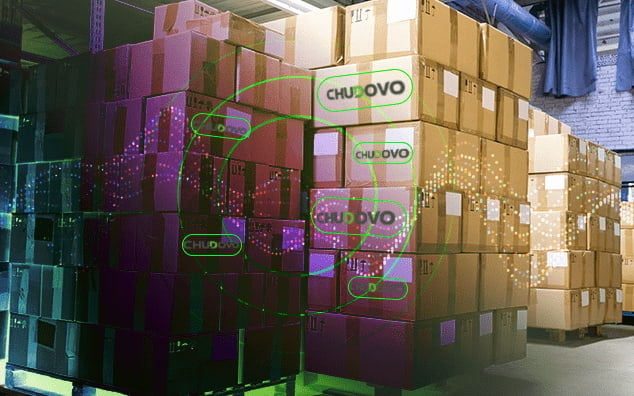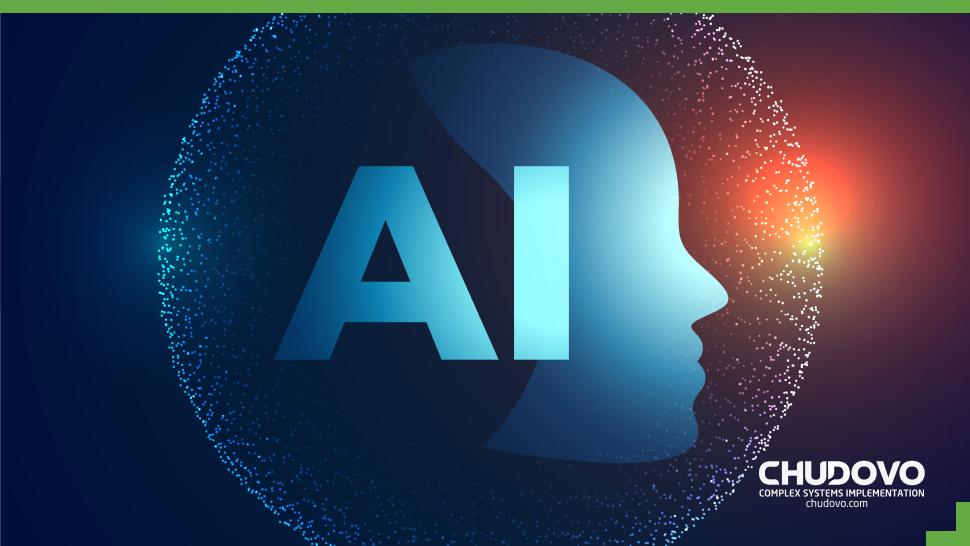Maximizing Growth: The Power of AI in Business Process Automation
Business process automation enables firms to remain successful and competitive in the industry. It refines their operations, ensuring they are easier to manage, correct, and affordable. Leveraging the synergy of AI and BPA can help businesses achieve their objectives, increase their growth, and efficiently navigate a marketplace that is always changing.
Table of Content
- What is business process automation?
- Applications of Artificial Intelligence in business automation
- The identical characteristics that exist between Artificial Intelligence and business process automation
- The importance of AI in business automation in enabling a business to achieve its goal
- Artificial Intelligence technologies used in business process automation
- FAQ
What Is Business Process Automation?
Business process automation is the use of digital tools to perform repetitive business operations. Business process automation tools such as HubSpot and Ontraport possess technological systems for the automation of multiple business procedures. For instance, the HubSpot marketing Hub is responsible for automating follow-ups with leads, social media posts, and email marketing. Ontraport is a customer relation management and business process automation software designed to assist organizations in developing and expanding by giving them all of the resources required to sell, market, and oversee their business activity via the Internet.
Whether it’s keeping up with customers, entering data, or monitoring your business workflow automation is the better method to perform these tasks in a professional way. Business process automation, given the adequate tools and infrastructure, enables users to define an array of operations that are going to be executed automatically in response to a specific event. For example, when a new lead shows up in your customer relations management system, an automatic email will be generated and sent out to promote your organization and services. Business process automation serves as a virtual assistant working round the clock to enhance the efficiency of a firm.
Business process automation software helps organizations cut expenses through the automation of procedures that are repetitive, enabling people to put more effort into doing challenging and essential tasks. It enhances precision as well as effectiveness, reducing human errors and optimizing procedures. Companies that execute automation in their operations can increase their Return on Investment, improve client experience, and stay relevant in their industry. Artificial intelligence and business process automation are solid technologies that will help your organization develop and expand rapidly to fulfill its goals more efficiently.

Applications of Artificial Intelligence in Business Automation
Sales and Marketing
Business process automation enhances the distribution of resources, prediction of sales, and administrative activities, all of which increase the marketing and sales process immensely. In sales, automation speeds up price quoting and validation procedures, ensuring rapid response to prospective customers. In marketing, business process automation is beneficial in email marketing, keeping track of leads, and follow-up of leads, which brings about reduced expenses and envisioned company goal.
- Automatic pricing quotation in sales. Business process automation systems automate price quoting, bringing about quicker and more precise replies to clients’ inquiries. These software programs take advantage of effective algorithms to evaluate price models, discounts, and configurations of products. Enabling sales personnel to promptly generate an estimate and maintain competitive price approaches. This helps businesses conclude transactions faster and boosts customer satisfaction.
- Automated email marketing advertisements. With business process automation, various aspects of email marketing processes can be automated. It improves marketing communication effectiveness through the ability to customize initiatives and automate reactions according to consumers’ behaviors. Businesses can properly nurture leads by categorizing audiences, personalizing content, and automating schedules for delivery, which leads to increased engagement and higher earnings for firms.
- Evaluation of potential customers. Business process automation software enhances evaluation of potential customers management. These systems offer assessment scores depending on the behavior and interactions of consumers to improve business efficiency. Leads are provided with the relevant information to keep customers engaged in a firm’s service through automated nurturing initiatives. This improves the distribution of resources, focusing on leads with significant values while also ensuring a targeted and timely solution to bring in more leads.
Invoice Processing
Handling a large number of invoices manually is error-prone and consumes a lot of time. Invoice automation becomes seamless using the business automation process, making sure that payments to suppliers are processed appropriately on the scheduled date and time with fewer errors. Enabling the finance team to concentrate on more important tasks such as preparing the company budget leading to better productivity in general.
- Data collection and confirmation. Business process automation systems are capable of collecting important information from numerous types of invoices, including invoice date, amount, and supplier details. Artificial intelligence system evaluates invoice data against established and standard requirements of the organization to minimize mistakes and ensure precise data in the financial system.
- Handling of exceptions and resolving issues. Business process automation technologies effectively detect irregularities in invoice data. When errors are present in the processing of invoice, the system automatically directs it to the appropriate personnel so that the issue can be fixed. This ensures that exceptions are resolved immediately, lowering the risks of delay in payments and boosting vendor relationships.
- Audit inspection and compliance. Business process automation systems can generate a well structured audit documentation for all invoice processing. This improves transparency and ensures compliance with regulations. This ability to generate a detailed record makes audits less difficult and improves transparency regarding finance within an organization.
- Automated validation methods. Depending on the firm’s regulations, business process automation systems can establish specified workflows for approval. After invoices are successfully completed, the system sends them automatically through the appropriate authorization channels. Eliminating approvals delays, hence speeding up all aspects of payment processing.
Customer Service
- Efficient response resolution with chatbot. Artificial intelligence can be used to aid chatbots so as to assist customers in handling trivial matters such as commonly asked questions, and help users navigate how to use a service, and details about products. Ensuring that common issues customers face are fixed promptly, giving them a satisfying service, and allowing employees to focus on more challenging tasks.
- Improved customer interaction through virtual assistant. Virtual assistants whose functionality is aided using artificial intelligence interact with customers in natural language and offer tailored support. For example, they can help consumers browse a list of items, making suggestions according to their personal tastes and offering prompt assistance. Client experience is improved, and an impression of an intentional service is developed, that fosters the retention of customers.
- Sentiment assessment to evaluate clients’ feedback. Sentiment analysis driven by artificial intelligence evaluates feedback from consumers from different sources, including reviews, social media, and surveys. When businesses evaluate the underlying feelings of their consumers, they can, therefore, gauge customers’ satisfaction and dissatisfaction. This intelligence helps businesses make improvements based on data about their goods and services, thus improving the whole customer experience.
Recruitment and Human Resources
Automation can help with onboarding, job posting, and inspection for compliance for newly hired employees and other HR duties, including departure interviews, timesheet monitoring, and performance evaluation. This saves time, enabling the human resource team to focus on important responsibilities such as culture development, educating employees, and initiatives to promote wellness.
- Resume screening. Artificial intelligence is used to speed up the recruitment process by automating the screening of resumes and swiftly inspecting profiles of applicants against job requirements. This improves the process of recruiting talents, leading to a more effective and equitable hiring process for applicants.
- Employee onboarding. Tools powered by artificial intelligence enhance the process of onboarding by providing essential details and answering common questions. These tools help newly hired employees to proceed better, helping them easily adopt the company culture, hence the human resource team is left to handle lesser administrative duties.
- Predictive analytics. Leveraging predictive analytics, artificial intelligence evaluates previous information of an employee to uncover trends and likely indications of leaving a particular organization. Firms can use insights to establish active tactics that will contribute to work satisfaction and retention of employees.

The Identical Characteristics that Exist Between Artificial Intelligence and Business Process Automation
While artificial intelligence and business automation process represent distinct ideas, they also have some important similarities that renders them complimentary technologies.
- Continuous improvement. Business process automation and artificial intelligence have the objective to continuously develop and get better over time. Artificial intelligence systems improve in intelligence as well as effectiveness as they learn from data. While the business process automation can be modified and enhanced according to performance.
- Technology integration. These two technologies can be integrated into current infrastructure, enhancing its usefulness without necessarily doing a major redesign.
- Scalability. Leveraging both technologies enterprise are able to rapidly expand their operations. These tools are capable of handling increasing workloads, which enables firms to expand without needing more man power.
- Data-driven. These two technologies rely solely on data to perform properly. Predefined processes are carried out by business process automation using data, while artificial intelligence systems learn from data, modifies it model and makes decisions.
- Automation. These tools primarily are used for automation. Business process automation handles repetitive, and rule-based processes, while artificial intelligence automates higher level tasks that involves decision-making, learning and reasoning.
- Enhanced-decision making. Both technologies are employed in order to make help your business make better decisions. Business process automation gives current information and insights into the operation of firms’, while artificial intelligence evaluates a large amount of data to find patterns abd insights that will help organizations make strategic choices.
Regardless of the similarities between them, it is worth emphasizing that these tools perform different functions, and their abilities are distinct. Business process automation primarily automates rule-based operations. Artificial intelligence abilities are beyond automation as they also possess computer vision and machine learning functionalities.
The Importance of AI in Business Automation in Enabling a Business to Achieve its Goal
Infusing artificial intelligence and business process automation together is more than just effective business operations. It offers benefits throughout different sectors. They are both transforming the business environments, which includes boosting revenues, brand expansion, client satisfaction, and management of cost. Businesses that integrate artificial intelligence in business automation can achieve their key goals and remain relevant in an ever-competitive market.
Market Share
Artificial intelligence and business process automation help in obtaining comprehensive details about customers and improving efficiency in operations, which leads to an increased market share for an organization. For instance, some AI-powered tools analyze the behavior of customers to know their preferences. Businesses use this information to make improvements in their service or product so as to react rapidly to the changing market condition, remain relevant, and hence increase market share.
Innovation
In today’s continuously changing market, to stay competitive, innovation is very essential. Assessing feedback from consumers through social media, polls, and ratings helps a business find out important issues and gaps in availability, before developing new goods that meet your customers’ requirements.
Operating Cost
A key business objective is to cut costs and increase profits, by refining operations and automating procedures. Business process automation will help reduce expenses by automating tasks that are repetitive such as invoicing, handling of inventory, and data input. When a business establishes the automation of some processes it helps it considerably save expenditure that would have been paid to people used for manual labor.
Brand Recognition
It is important that a business set a goal of constantly improving its brand awareness, promoting its image thereby creating a solid online presence. Artificial intelligence and business process automation can increase brand awareness by refining marketing campaigns.
For instance, tools such as Hootsite used for handling social media can be used to automate posting to social media and engagement. Moz, an SEO tool, can be used to make improvements to the content of websites and push the results in search engines. With the use of artificial intelligence, specific audiences are understood, and marketing campaigns are made that suit these consumers, hence attracting them to your brand. Certain AI tools will evaluate customers’ comments and find trends that will enable you to tailor your communication such that it connects with your intended audience.
Revenue
The main goal of every business is to earn income and increase it as time passes. Several frequent methods include growing your customer base, releasing new products or services, enhancing sales, and raising prices. Using artificial intelligence and business process automation organizations can improve income by automating marketing and sales operations.
Artificial intelligence-powered tools can make tailored suggestions and address consumers’ concerns, which leads to increased sales. FreshBooks and QuickBooks are software that can be used to automate invoicing procedures, this saves workers time on documentation, allowing them to focus on generating income for the firm. Tools such as Tableau used for predictive analysis will help an organization identify trends in sales data and determine future sales helping you to adjust your strategy appropriately.

Certified engineers
Convenient rates
Fast start
Profitable conditions
Agreement with
EU company
English and German
speaking engineers
Artificial Intelligence Technologies used in Business Process Automation
Robotic Process Automation
An important component of the business process automation is the robotic process automation. This is responsible for the automation of regular and rule-based operations. Connecting with artificial intelligence amplifies its capabilities, aiding smart and versatile automation. It improves productivity, and accuracy, enabling the use of manpower to be focused on more complex activities. A report from Statista stated that 56% of Italian companies leverage the usage of robotic process automation to extract data automatically from its source.
Natural Language Processing
Natural language processing enables machines to analyze and understand human language. The algorithm for the natural language process extracts insights from texts. It can be used for voice recognition, which involves converting spoken words into a medium of writing. It can be controlled using the voice and supports automatic transcription. It can used in automating translations and retrieving of information.
Computer Vision
This is an aspect of artificial intelligence and computer science that plays an essential role in business process automation because it enables computers to recognize, translate, and evaluate visual information from videos, photography, and other visual inputs. The basic concept of computer vision is to imitate human visual perception, which involves collecting relevant details from visual data in the same way humans do.
FAQ
How does AI Transform Traditional Business Automation Beyond Predefined Models?
Artificial intelligence in business automation takes the lead, integrating adaptive learning and assessing automation procedures. With the natural capacity of artificial intelligence to learn and adapt, businesses can overcome the constraints of traditional business process automation. As changes happen, systems powered by artificial intelligence can adapt readily, detect patterns, and make smart verdicts, resulting in a very responsive system.
How to use AI & Business Process Automation to Achieve Your Business Goals?
- Identify the objective of the business
- Evaluate the business procedures
- Select the appropriate artificial intelligence and business process automation tools
What are the Benefits of AI-driven Business Process Management?
- Competitive advantage. It enables innovation of new products or services, can help businesses adapt to changing market conditions, and identify risks
- Enhanced decision-making. Artificial intelligence can make future predictions based on past data and evaluate large data to make decisions that help firms succeed.
- Improved productivity. Artificial intelligence boosts business processes by automating certain tasks to provide seamless services for consumers.
- Cost reduction. Optimization of procedures and automation aids in lowering expenditure and saves costs. Artificial intelligence can help businesses properly allocate resources, distributing them evenly in departments where resources are underused.
- Better customer satisfaction. Leveraging artificial intelligence in businesses can help to identify issues, automate tasks related to customer services, and make recommendations based on customers choices all of which result in increased customers’ experience.
Contact the expert team of Chudovo software engineers to build and leverage AI with your business process automation.






